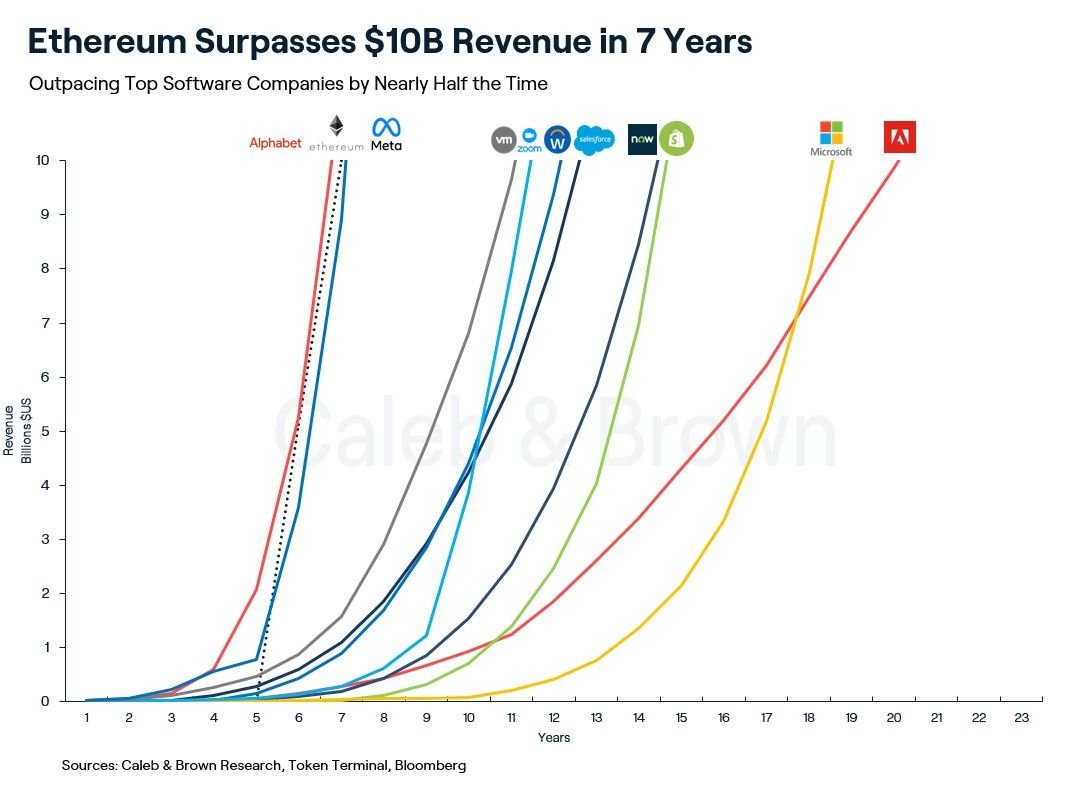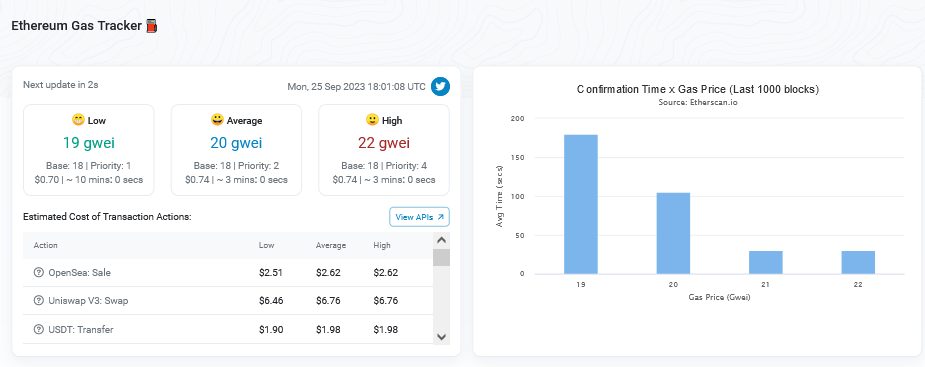Ethereum
Ethereum Generates Over $10 Billion In Revenue In 7 Years

[ad_1]
Ethereum, the world’s most valuable smart contract platform, has generated over $10 billion in revenue in a record seven years. At this pace, Ethereum grew to this milestone faster than most top technology firms, except Alphabet.
Ethereum Hit The $10 Billion Milestone Faster Than Microsoft, Zoom
Records showed that Ethereum took roughly seven years to mint $10 billion in revenue, based on spot ETH rates, and was only eclipsed by Alphabet, which took approximately six years, according to data compiled by Token Terminal, an analytics platform.
Comparing this performance with other technology firms, for example, Microsoft, it appears that Ethereum found rapid adoption, and its solutions were embraced faster. Microsoft took almost 19 years to achieve this milestone, while Adobe took roughly 20 years.

The chart also shows that emerging platforms like Zoom took relatively shorter to hit the milestone. Zoom, a communication platform that allows audio and video online meetings, took nearly 11 years to generate $10 billion in revenue.
Zoom rose to prominence from late 2019 through 2020 during the COVID-19 lockdown period when companies opted for online meetings to operate. Since then, the platform has remained popular and is currently valued at over $20 billion as of late September 2023.
The surge of Ethereum is partly because of its capabilities. Unlike Bitcoin, which released the first trustless and functional transactional network, Ethereum allows the deployment of more complex protocols in various industries, including finance, gaming, or art.
When writing on September 25, ETH, the native currency of Ethereum, was changing hands at around $1,570, and the network had a market cap of over $191 billion.
Revenue Driven By Gas Fees And Activity
Ethereum revenue comes primarily from its transaction fee, measured in gas. Depending on the complexity of the transaction, the network charges different gas or fees.
Simple transfers that don’t require the execution of smart contracts are relatively cheaper. On the other hand, those that are powered trustlessly by smart contracts will be more expensive. Fees depend on the complexity of the transactions.
All the revenue generated is distributed to validators. These entities are tasked with securing the network and validating transactions, a role they are compensated with block rewards and transaction fees attached to every block.
However, the revenue generated depends on the network activity—the higher the transaction processed and the higher the fee attached to every block. Usually, increased network activity tends to lift gas fees due to rising block space demand.

According to Etherscan data, Ethereum processed over 883,000 transactions on September 24, down from more than 1.93 million on December 9. Meanwhile, the average transaction fee is $0.74.
Feature image from Canva, chart from TradingView
[ad_2]
Source link







